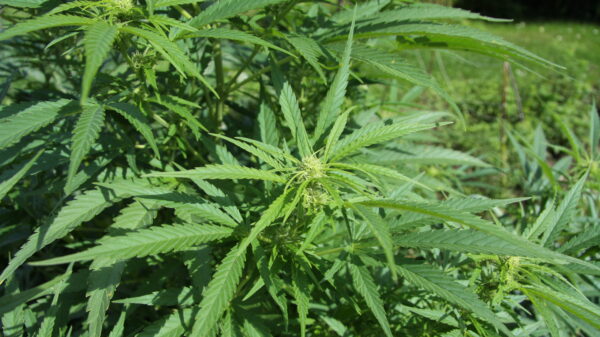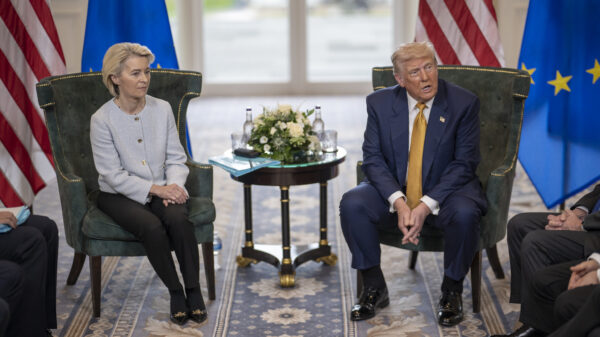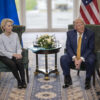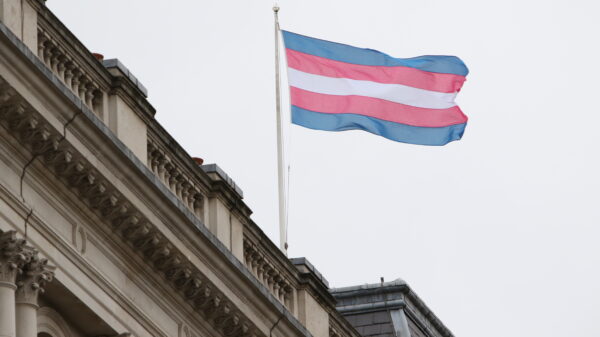Staff writer Charles Hinds talks to students who have been impacted by the terrorist attack of October 7 and its aftermath.
Since autumn last year, life in London has been turned upside-down for many Jewish and Israeli students by a 1,350% increase in antisemitic attacks. The Israeli counter-offensive into the Gaza Strip has promulgated a series of rallies that have made some British Jews feel unsafe. The Campaign Against Antisemitism (CAA) describe these protests and marches as “no-go zones”.
Regardless of how well you think this account fits the reality, it is undeniable that many Jewish students are feeling less safe on campus and in London than they used to. Recent campus incidents, such as the finding of a swastika drawn on a desk and comparisons between Israel and Hitler being left on a whiteboard in an Activity Room, suggest that antisemitism has spread into life at King’s.
Due to concerns over personal safety, a number of students who contributed their views to this article wished to remain anonymous, highlighting a concerning issue: Jewish students, who should be treated as valued members of the student body, are instead having to calculate whether they should risk calling out antisemitism.
Aurele Tobelem
Hearing from the President of the King’s College London (KCL) Israeli Society, Aurele Tobelem, provided some important insight into the difficulties that Jewish and Israeli students have had in feeling safe on campus.
One particular issue raised by Aurele was some of the language involved in the Palestinian protests, especially the frequent use of the term ‘intifada’. Intifada, from the Arabic word for ‘uprising’ or ‘shaking off’, depending on interpretation, has become one of the single most contentious phrases to come out of this conflict. The term is used to refer to two historic uprisings of Palestinians in Gaza and the West Bank.
But the word has been cited by many as evidence of not only anti-Zionism, but also antisemitism. Many people see this language as a very tangible call for violence against Jewish and Israeli people.
There has not been a protest on King’s campuses with the express purpose of supporting an Intifada since the October 7 attack, but there have been multiple incidents of speakers, attendees and displays referencing one.
Aurele argues that the ambiguity of the term intifada is deeply, personally insulting to those closest to the conflict. Stressing how painful hearing references to this kind of violence can be, he talks about how his great-uncle survived a bus bombing in 2000 by complete chance. The bomb was placed at the front of the bus while his great-uncle was sitting towards the back. For Aurele, every time that word was used it was as though “they were calling for [him] to be moved to the front of the bus”.
Ethan Benjamin
Ethan Benjamin, President of King’s Jewish Society, repeated many of the same concerns, especially regarding the language used during the protests. He supports the right to free speech, but argues that “many people… [are] joining the movements without properly educating themselves”.
Ethan highlights the use of chants and songs that have deep cultural and symbolic meaning, and how they are used flippantly by those who lack a personal connection to the conflict. Common protest chants like ‘from the river to the sea’ have a contested meaning – Labour MP Andy McDonald was suspended over using it in October last year.
He says that he has had an increasing need to “find that balance between safety and not living in fear” over the last few months. Ethan’s insecurity, and that of his friends, includes a debate over whether they should express outward signs of Jewishness, such as a Magen David or yarmulke. He also called for greater diversity amongst the Students’ Union’s (KCLSU’s) Student Officers so that Jewish students would have a stronger voice in these issues.
Feeling Safe on Campus
Despite these problems, both interviewees are keen to credit the university, and Vice Chancellor Shitij Kapur, for their action. Aurele also noted that he is “extremely grateful that our Dean [Reverend Dr Ellen Clark-King] at King’s… is actually someone with a shred of humanity” and that she has taken the time to meet with Jewish and Israeli members of King’s student body. He also praises KCL’s strong record of taking action against antisemitism, including its decision to adopt the International Holocaust Remembrance Alliance (IHRA) definition.
Many Jewish and Israeli students report that other passive means of showing solidarity with Palestine, such as using laptop decals or lapel pins, make them feel less welcome on campus too. Yet these are ambient actions and do not pose a direct threat to any members of the student body; regardless of how uncomfortable it may make them feel – many interviewees recognise the tension between their feelings and the right to free speech.
One second-year female student explained how her life in London had been fundamentally altered over the last six months. She comments on the campus walkouts, recognising that they have never actually been hostile or targeted towards anyone. Like Aurele, she acknowledges that contentious remarks were never a central component, but she states that she’d never seen anyone raising an issue or challenging a speaker when they were made.
Robin McIver, KCL’s Deputy Vice President for Operations, told Roar, “Our role as a University is to offer a safe, welcoming and supportive environment for all our students and our staff where different views and opinions can be shared and discussed within the laws of freedom of expression. We know that concerns for safety, both on campus and across London more generally, have been raised and we have enhanced security measures to keep our community safe on campus, including the SafeZone app which can be used to contact security teams directly. Racism, antisemitism, Islamophobia, abuse and harassment is totally unacceptable and has no place at King’s, and where there have been reported incidents on campus, we have implemented our robust processes through Report and Support.”
For many Israeli and Jewish students, the last few months have been a time of making considered decisions about how they should balance expressing their Jewishness and their safety. While we must never forget the impact and loss of lives in wars overseas, we must also always be aware of the real consequences of our actions closer to home.















